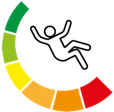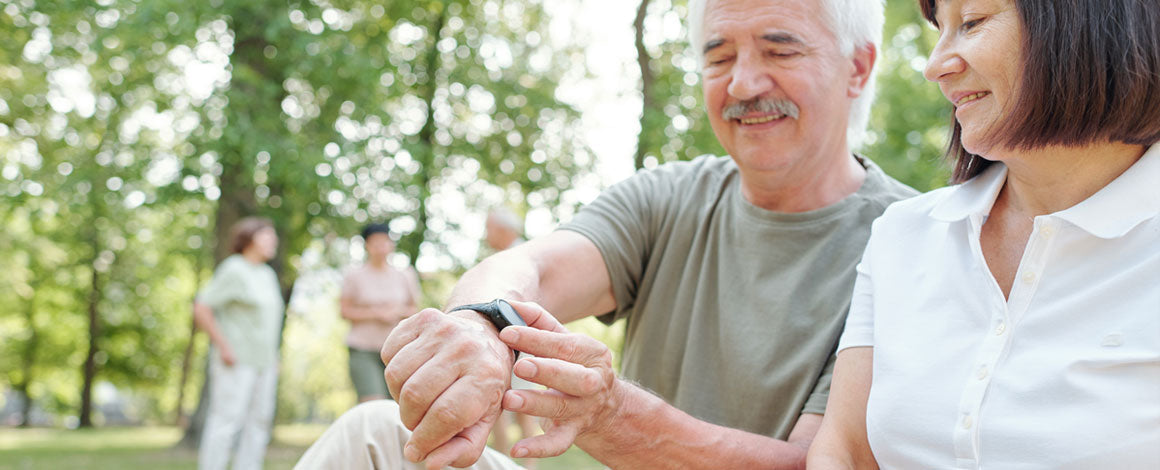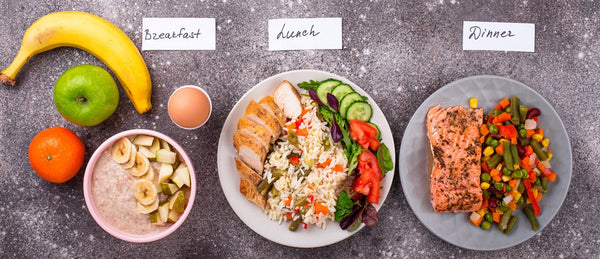You may be of the opinion that fitness trackers are only for super fit people who wish to track their exercise activity and calories lost. However, these devices offer plenty of other functions that could benefit you in all aspects of life, no matter your age or fitness levels.
How do fitness trackers work?
Fitness trackers can generally gather all of the information they need from movement. This could be your physical movement to count steps or work out how far you’ve walked, or it could be the movement of your blood to calculate your heart rate and blood pressure. Alternatively, they can use all this information to determine when you’re sleeping and for how long.
It may be beneficial to have a personal alarm for the elderly alongside a fitness tracker. An emergency alarm for the elderly can be worn around the neck or wrist and is a way for you to alert an emergency response team of a problem. For instance, if you have a fall at home or experience a medical emergency, such as a stroke or allergic reaction, you can push the alarm and get medical assistance quickly.
Pendant alarms and elderly fall alarms work well when combined with other pieces of technology, including fitness trackers, as you could check your heart rate or blood pressure using the tracker to ensure everything’s okay in those areas.
What do fitness trackers do?
Fitness trackers can collect and store data that you may want to know or refer back to later. This includes your location if you want to track a walking or running route, how many calories you’ve burned and how far you’ve travelled. They do this by monitoring your movements and using GPS technology that enables them to detect where you are.
While this may not sound like something you need, fitness trackers can also be useful for people who want to monitor other aspects of their health, including sleep quality and blood pressure.
Some clever personal alarm devices, like this personal alarm watch, combine the security of a personal alarm with features found in fitness trackers such as heart rate monitoring and GPS tracking.
Below, you can find a list of things that these wrist-worn fitness tracking devices can measure.
Heart rate
Fitness trackers can monitor your heart rate by shining a small light through the skin. The tracker can detect the movement of the blood pumping down your arm and back to your heart and calculate the rate depending on how quickly the blood is moving. The faster your heart rate, the quicker the blood will move.
In the past, these devices have been criticised for their inaccuracy. Despite this, their detectors can still provide a basic idea of your heart rate and can be beneficial if you’re concerned about your heart beating too quickly during light or moderate exercise.
Step count
The recommended number of steps per day is 10,000, however, as you get older, this may not be achievable - 10,000 steps is equal to around five miles. Instead, if you have your own step target, a fitness tracker could tell you when you’ve reached it.
Sleep quality
Many fitness trackers are slim and lightweight, meaning you can wear them at night and hardly notice they’re there. Tracking sleep can be important to show you certain patterns and trends that might explain why you wake up in the night or feel tired during the day.
These devices won’t go into detail about when you’re in a light or deep sleep, but the movements you make at night could signal when and how often you’re waking up. They will also tell you how long you’ve slept for.
Can fitness trackers measure blood pressure?
Blood pressure can be tracked in the same way as your heart rate. The device can detect the movement of blood flow to determine your blood pressure. Some trackers may also have sensors that can detect the colour of the blood vessels. Blood vessels change in colour as the blood pulses in and out of them with every heartbeat, so this change can be monitored too. However the reading should be taken with caution - sometimes, these devices are not 100 percent accurate.
How does a fitness tracker measure sleep?
It’s been previously mentioned that a fitness tracker can monitor your sleep, but how exactly does it do this?
These devices can track your sleep in the same way they track your heart rate, step count or blood pressure - with movement. When you’re asleep, you move much less than when you’re awake. You may not realise it, but even when you’re lying awake in bed, you’re moving to scratch an itch or get comfortable.
Your heart rate also decreases as you settle into sleep, so the device can sense this subtle change to determine when you’re asleep and when you’re awake.






